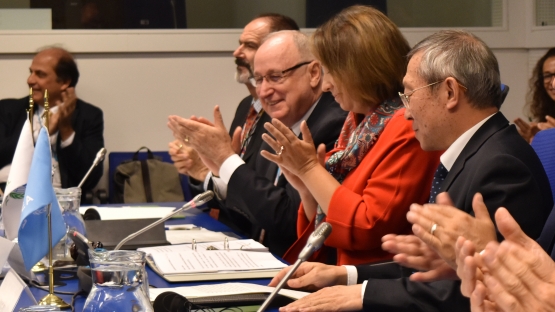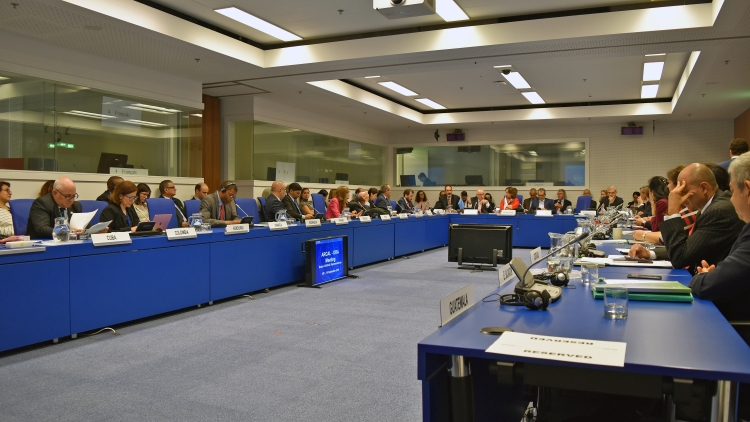The 19th Meeting of the Board of Representatives (ORA) of the Regional Cooperation Agreement for the Promotion of Nuclear Science and Technology in Latin America and the Caribbean (ARCAL) took place on 18 September 2018 in Vienna, Austria, during the 62nd IAEA General Conference. This meeting was attended by representatives of ARCAL State Parties and provided an important forum for the delegates to consider the achievements of the previous year and to review 10 proposed regional projects, which may be launched during the next technical cooperation cycle (2020–2021).
The meeting was chaired by the President of ORA, Alicia Buenrostro Massieu, Ambassador and Permanent Representative of Mexico to the IAEA. The President was supported by the representative of Cuba as Vice-Chair, and by the representative of Brazil as Secretary.
The meeting was also attended by Dazhu Yang, IAEA Deputy Director General and Head of the Department of Technical Cooperation (TC), and Aldo Malavasi, IAEA Deputy Director General and Head of the Department of Nuclear Sciences and Applications. Mr Malavasi highlighted the importance of building awareness of the 35th anniversary of ARCAL by celebrating and taking stock of the milestones achieved under the Agreement in applying nuclear science and technology for sustainable development in the Latin America and the Caribbean region. The meeting provided an occasion to highlight the continuous efforts of IAEA Member States, supported by the IAEA TC programme and the Department of Nuclear Safety and Security, to strengthen the radiological protection infrastructure of the countries of the region.
During the meeting, ARCAL representatives also celebrated the signing of the Cooperation Agreement between the National Institute of Nuclear Research (ININ) of Mexico and the Peruvian Institute of Nuclear Energy (IPEN). This Agreement was developed under the aegis of an ongoing ARCAL project that promotes sustainability by establishing networks among national nuclear energy institutions in the Latin American and Caribbean region1. The Agreement will contribute to the sustainability of these institutions, and it formalizes their collaboration in the application of nuclear technologies in medicine, agriculture, industry, isotope hydrology, uranium mining, safety, and in the operation of nuclear research reactors.






